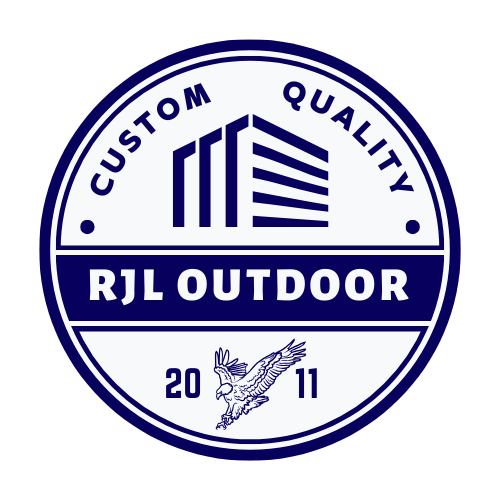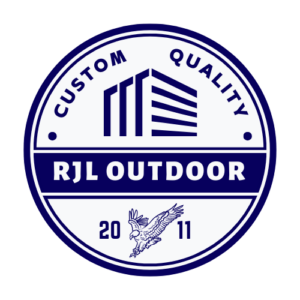Howdy!:
Custom Metal Gates: Your DFW Guide to Elevated Security & Style
Y’all know Texas – we do things big. That goes for our homes, our hospitality, and yep, even our security. Here in DFW, a custom metal gate ain’t just about keepin’ folks out, it’s about makin’ a statement. It’s about sayin’, "This is my castle," with a whole lotta Texan pride.
But let’s be real, navigatin’ the world of custom gates can feel like herdin’ cats. Iron, steel, aluminum – oh my! Fear not, partners. This here’s your comprehensive guide to custom metal gates in the DFW metroplex. We’re talkin’ materials, styles, the whole nine yards. By the time we’re done, you’ll be speakin’ gate lingo like a seasoned pro.
Why Choose a Custom Metal Gate?
Look, we get it. Those pre-fab gates at the big box stores? They’re temptin’ with their low price tags. But here’s the thing: custom metal gates are an investment. They’re built to last, withstand the Texas heat, and most importantly, reflect your unique style.
Think about it:
- Security: A sturdy metal gate is a powerful deterrent against unwanted guests.
- Curb Appeal: First impressions matter, and a custom gate instantly elevates your home’s aesthetic.
- Property Value: A well-crafted gate adds value to your property, plain and simple.
- Customization: From intricate designs to personalized touches, your gate can be as unique as you are.
Materials: Iron vs. Steel vs. Aluminum
Alright, let’s break down the big three when it comes to metal gates:
1. Iron Gates: The Classic Choice
Iron gates are like the granddaddies of the bunch. They’ve been around forever, and for good reason. Iron is incredibly strong and durable, able to withstand decades of wear and tear. Plus, it offers that timeless, elegant look that never goes out of style.
Pros of Iron Gates:
- Strength & Durability: Iron laughs in the face of Texas storms.
- Classic Aesthetics: Timeless elegance that complements a variety of architectural styles.
- Customization: Iron can be easily shaped and molded into intricate designs.
Cons of Iron Gates:
- Rust Potential: Iron requires regular maintenance to prevent rust.
- Weight: Iron gates are heavy, requiring sturdy posts and professional installation.
- Higher Cost: Generally more expensive than aluminum gates.
2. Steel Gates: The Modern Workhorse
Steel gates are the tough guys on the block. Made from an iron-carbon alloy, steel is even stronger than iron and offers excellent resistance to impact and bending. Steel gates are a popular choice for homeowners seeking a modern, industrial look.
Pros of Steel Gates:
- Superior Strength: The strongest option for ultimate security.
- Durability: Highly resistant to dents, scratches, and weathering.
- Modern Aesthetics: Sleek and contemporary designs.
Cons of Steel Gates:
- Rust Susceptibility: Steel can rust if not properly treated and maintained.
- Weight: Steel gates are also heavy, requiring professional installation.
- Cost: More expensive than aluminum, but often less expensive than wrought iron.
3. Aluminum Gates: The Lightweight Contender
Don’t let the lightweight nature fool you, aluminum gates are no pushovers. Aluminum is naturally corrosion-resistant and surprisingly strong, making it a popular choice for coastal properties and areas with high humidity.
Pros of Aluminum Gates:
- Rust Resistance: Naturally resistant to rust and corrosion.
- Lightweight: Easier to install and operate than iron or steel gates.
- Versatility: Aluminum can mimic the look of iron or steel at a lower cost.
Cons of Aluminum Gates:
- Strength: Not as strong as iron or steel, making it less ideal for high-security applications.
- Denting: Aluminum is more prone to dents and scratches.
- Aesthetics: While aluminum can be powder-coated to resemble other metals, it may not have the same visual depth and texture.
Styles: Finding Your Perfect Match
Now for the fun part – choosing a style that reflects your personality and complements your home’s architecture.
1. Classic Styles:
- Wrought Iron Gates: Think ornate scrolls, intricate details, and timeless elegance. Perfect for traditional homes, Victorian architecture, or those seeking a touch of Old World charm.
- Estate Gates: Grand and imposing, estate gates make a statement. Typically featuring double swing gates, arched tops, and intricate detailing.
- Garden Gates: Smaller and more whimsical, garden gates add a touch of charm to pathways and gardens.
2. Modern Styles:
- Minimalist Gates: Clean lines, geometric shapes, and a focus on simplicity. Ideal for contemporary homes and those who prefer an understated aesthetic.
- Horizontal Slat Gates: Sleek and modern, these gates feature horizontal slats spaced evenly apart.
- Laser-Cut Gates: Intricate designs cut into the metal using a laser, allowing for highly customized patterns and details.
3. Other Popular Styles:
- Mediterranean Gates: Inspired by Spanish and Italian architecture, these gates often feature arched tops, decorative hardware, and warm, earthy tones.
- Southwestern Gates: Rustic and charming, southwestern gates often incorporate natural elements like wood or stone.
- Contemporary Gates: A blend of classic and modern elements, contemporary gates offer a fresh take on traditional styles.
Beyond the Basics: Gate Features & Options
Gates aren’t just about the material and style; there’s a whole world of customization options to explore:
- Driveway Gates: Swing gates, sliding gates, and even bi-folding gates are all options for your driveway.
- Pedestrian Gates: Smaller gates designed for foot traffic, often matching the style of the driveway gate.
- Security Features: Spikes, finials, and pointed tops can deter climbers.
- Automation: Electric gates provide ultimate convenience and can be operated with a remote control, keypad, or smartphone app.
- Finishes: Powder coating provides a durable and long-lasting finish in a variety of colors.
- Hardware: Decorative hinges, handles, and latches add a personalized touch.
Finding the Right DFW Gate Company
Choosing the right gate company can make all the difference in terms of quality, craftsmanship, and overall satisfaction.
Here’s what to look for:
- Experience: Choose a company with a proven track record in designing and installing custom metal gates.
- Portfolio: Check out their previous work to get a sense of their style and capabilities.
- Materials: Inquire about the types of metals they use and their sourcing practices.
- Customization: Ensure they offer a high level of customization to create your dream gate.
- Installation: Proper installation is crucial, so choose a company with experienced installers.
- Warranty: A reputable company will stand behind their work with a solid warranty.
Custom Metal Gate FAQs
Q: How much do custom metal gates cost?
A: The cost of custom metal gates varies widely depending on the size, material, style, and features. It’s best to contact several DFW gate companies for personalized quotes.
Q: How long does it take to get a custom metal gate installed?
A: Lead times can vary depending on the complexity of the project and the gate company’s schedule. It’s best to plan for several weeks or even months from the initial consultation to the final installation.
Q: Do I need a permit for a custom metal gate?
A: Permitting requirements vary by city and HOA. It’s essential to check with your local authorities before starting any gate project.
Q: How do I maintain my custom metal gate?
A: Regular cleaning with mild soap and water can prevent dirt and grime buildup. Iron and steel gates may require periodic repainting or touch-ups to prevent rust.
DFW: Your Custom Metal Gate Awaits
A custom metal gate is more than just an entryway – it’s a statement piece, a security feature, and an investment in your property. By choosing the right material, style, and DFW gate company, you can create a gate that reflects your unique style and enhances your home for years to come.
RJL: So there you have it, folks, your guide to custom metal gates in the DFW area. Remember, when it comes to your home, don’t settle for ordinary. Go custom, go bold, and show Texas what you’re made of!





